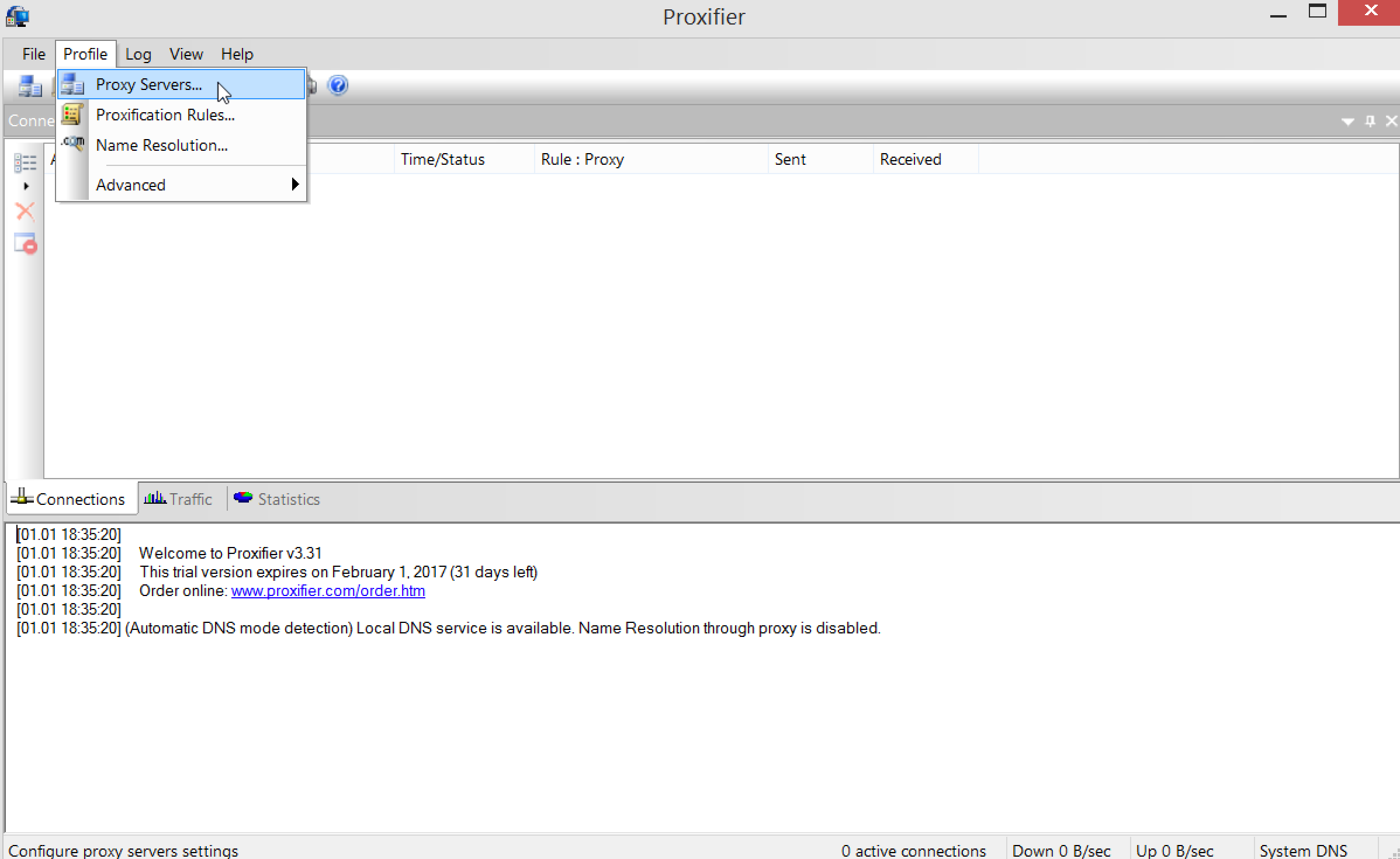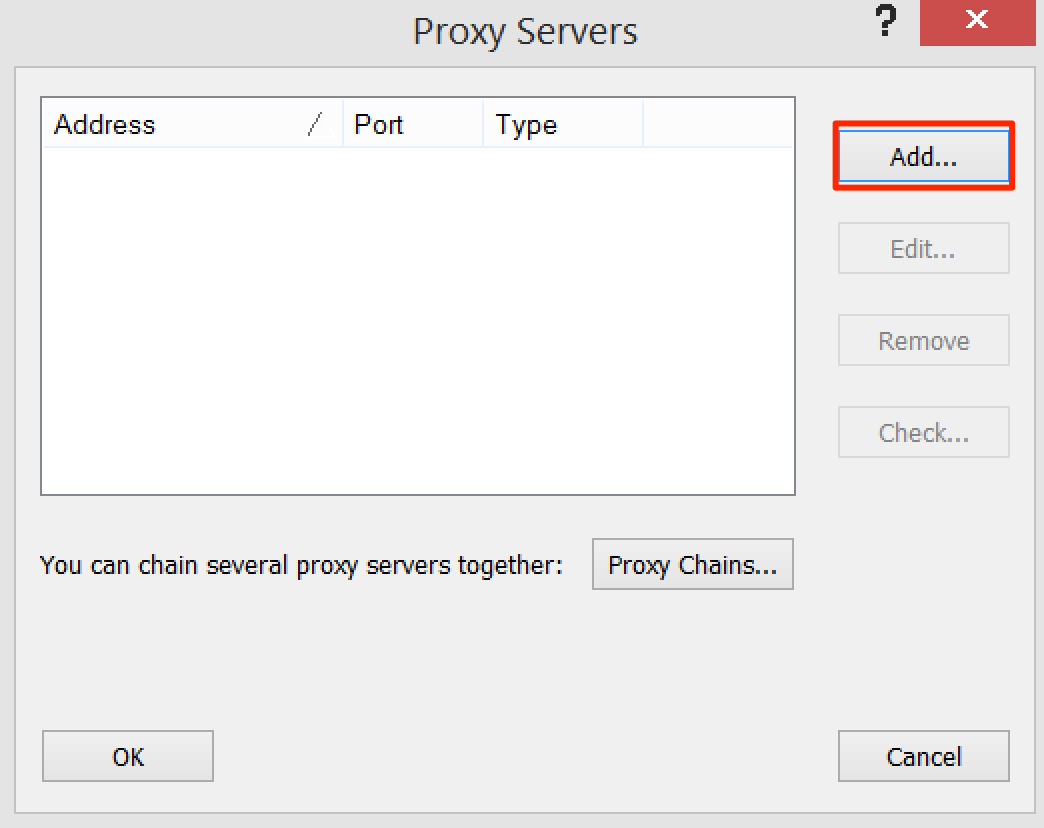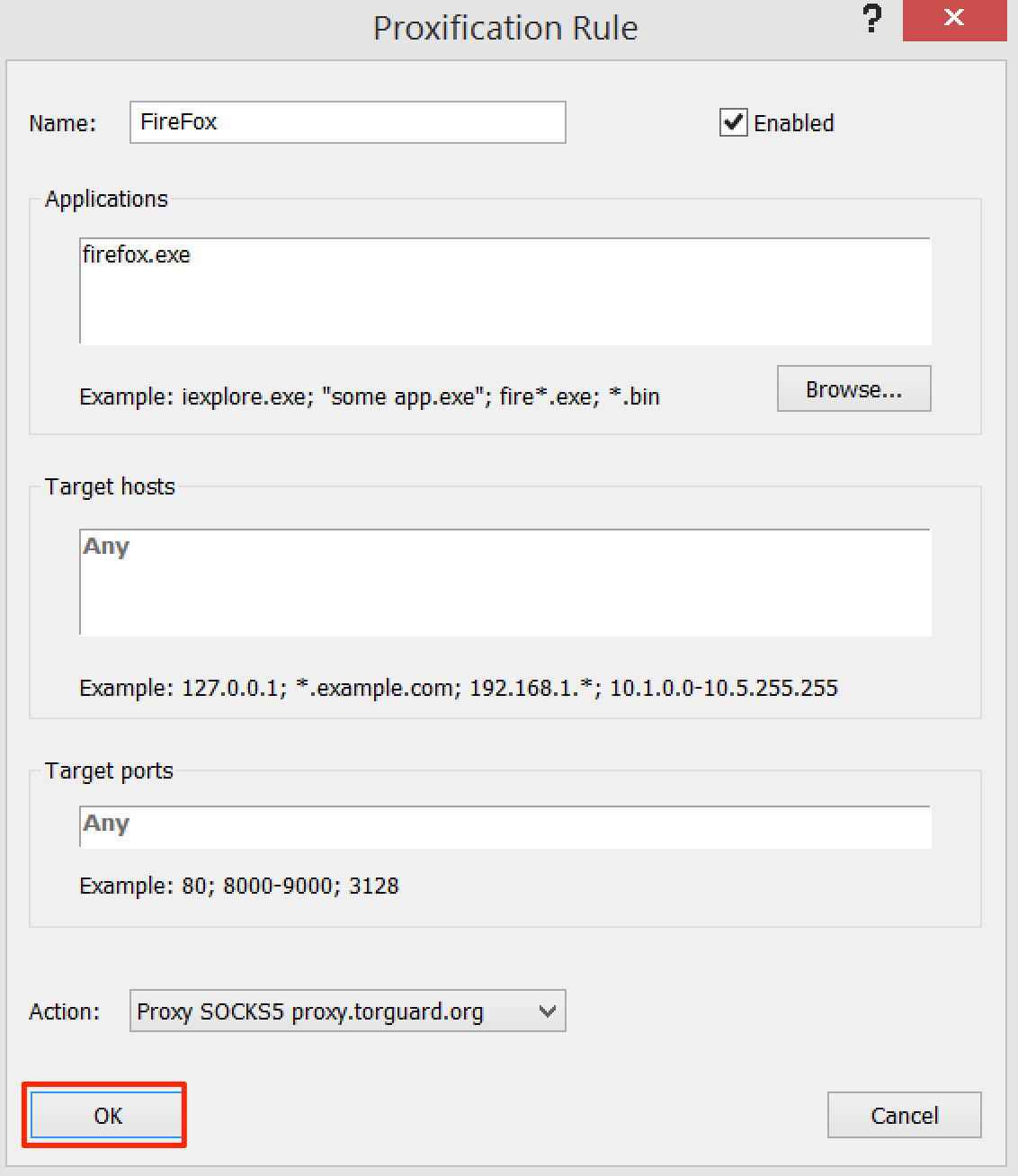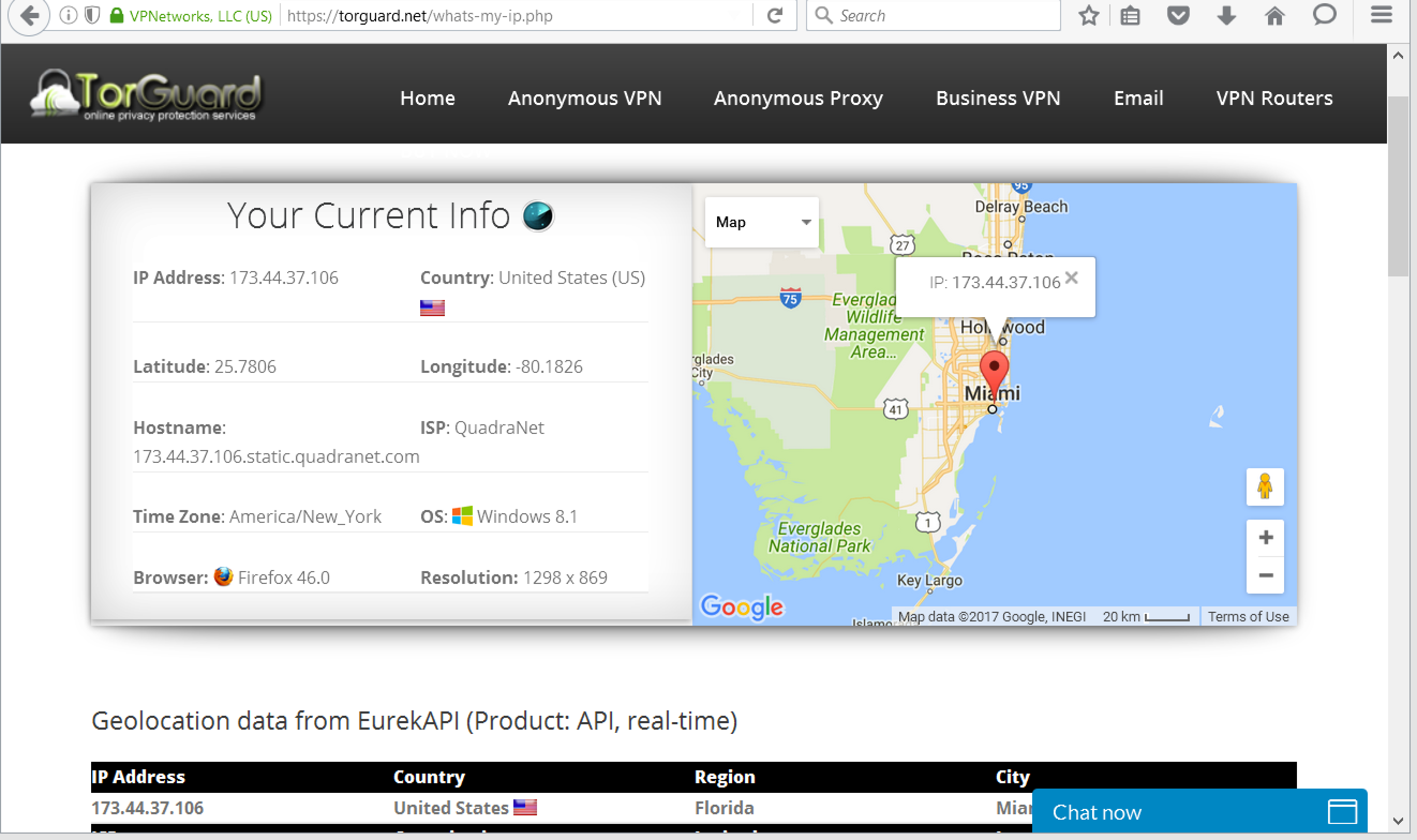Proxifier is a powerful proxy client that allows you to route specific applications through proxy servers, even if those applications don't natively support proxy connections. This guide will walk you through configuring Proxifier with TorGuard's proxy service to enhance your privacy and security.
What is Proxifier?
Proxifier is a proxy client software that:
- Routes network connections through proxy servers
- Works with applications that don't support proxies natively
- Allows per-application proxy rules
- Supports SOCKS5, HTTPS, and HTTP protocols
- Available for Windows and macOS
Prerequisites
- Active TorGuard proxy service subscription
- Your TorGuard proxy username and password
- A proxy server IP address from your TorGuard client area
- Proxifier software (download from official website)
Step 1: Configure Proxy Server in Proxifier
After installing Proxifier, launch the application and navigate to Profile → Proxy Servers.

Step 2: Add New Proxy Server
Click the Add button in the Proxy Servers window to add your TorGuard proxy details.

Step 3: Enter Proxy Details
Configure your proxy server with the following settings:
For SOCKS5 Proxy:
- Address: Enter your chosen proxy server IP from the SOCKS5 servers list
- Port: 1080, 1085, or 1090
- Protocol: SOCKS Version 5
- Authentication: Check "Enable"
- Username: Your TorGuard proxy username
- Password: Your TorGuard proxy password
For HTTP(S) Proxy:
- Address: Enter your chosen proxy server IP from the HTTP proxy servers list
- Port: 465, 995, or 7070 for SSL
- Protocol: HTTPS or HTTP
- Authentication: Check "Enable"
- Username: Your TorGuard proxy username
- Password: Your TorGuard proxy password

Step 4: Create Proxification Rules
Navigate to Profile → Proxification Rules to specify which applications should use the proxy.
To create a rule for Firefox (as an example):
- Click Add to create a new rule
- Enter a name for your rule (e.g., "Firefox")
- Click Browse and navigate to your Firefox installation:
- Windows:
C:\Program Files\Mozilla Firefox\firefox.exe - macOS:
/Applications/Firefox.app
- Windows:
- Under Action, select the proxy server you configured in Step 3
- Click OK to save the rule

Step 5: Verify Your Connection
Once configured, launch the application you've set up (Firefox in this example) and visit TorGuard's IP Check to verify that your traffic is being routed through the proxy.

Advanced Configuration Tips
Multiple Application Rules
You can create separate rules for different applications, each using different proxy servers or direct connections:
- Web browsers through US proxy
- Torrent clients through Netherlands proxy
- Gaming applications with direct connection
- Work applications through specific proxies
DNS Configuration
For enhanced privacy, configure Proxifier to resolve DNS through the proxy:
- Go to Profile → Name Resolution
- Select Resolve hostnames through proxy
- This prevents DNS leaks and enhances privacy
Chain Proxies
Proxifier supports proxy chains for additional anonymity:
- Add multiple proxy servers
- Create a chain in Profile → Proxy Chains
- Route traffic through multiple proxies sequentially
Use Cases for Proxifier
| Use Case | Benefit |
|---|---|
| Legacy Applications | Add proxy support to apps that don't have it built-in |
| Per-App Routing | Different apps can use different proxy servers |
| Gaming | Route game traffic through proxies to reduce ping or access geo-blocked servers |
| Development | Test applications with different proxy configurations |
| Corporate Networks | Access internal resources through corporate proxies |
Troubleshooting Common Issues
- Authentication Failed: Double-check your TorGuard proxy username and password. These are different from your VPN credentials.
- Connection Timeout: Verify the proxy server is online at the proxy status page.
- Application Not Using Proxy: Ensure the application path in the rule matches exactly. Use the full path to the executable.
- Slow Performance: Try a different proxy server location closer to your physical location.
- DNS Leaks: Enable DNS resolution through proxy in Name Resolution settings.
Important Notes
- Proxifier is third-party software not developed by TorGuard
- Some applications may not work properly when proxified due to their design
- System applications should generally not be proxified to avoid issues
- Always test your configuration with IP verification tools
For additional support with proxy configuration or if you encounter any issues, please contact our support team.